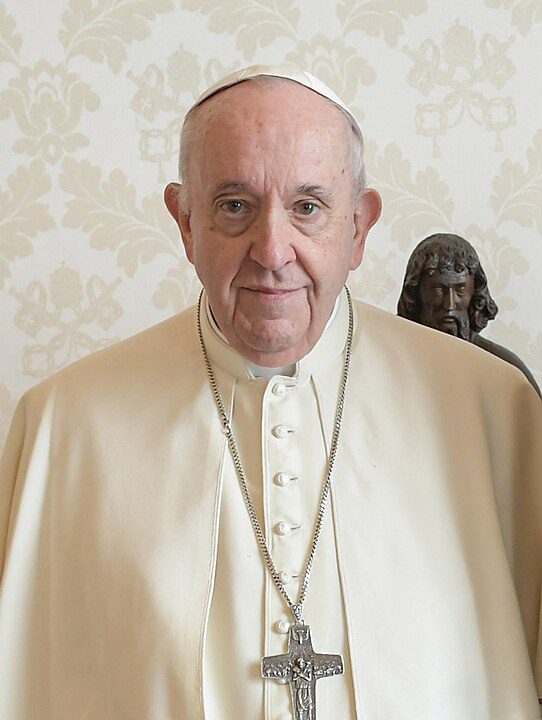More on the Vatican’s “Synod on Synodality” that we blogged about yesterday. . . .Conservative Catholics have always shown, as part of their hallmark, an extremely high view of the papacy and of the pope’s authority. Now that a liberal Catholic is pope, that puts them in a quandary.
I have wondered how they are dealing with that. If they believe that the pope is the supreme authority through whom God reveals His will, shouldn’t conservative Catholics jettison their conservatism and agree with what the liberal pope is saying and doing? And yet, to their credit in my opinion, they aren’t.
I came across an article by Eric Sammons, the editor-in-chief of the conservative Catholic periodical Crisis Magazine, that helps explain what is happening. It’s entitled How Pope Francis Is Inadvertently Developing the Doctrine of the Papacy with the deck that gives the article’s thesis: “By his abuse of Catholics’ already-unhealthy overemphasis on the papacy, Pope Francis is leading many of them to now look more closely at the underlying official teaching.”
Sammons first makes an important distinction between the “development of doctrine,” a concept in Catholic theology that liberals are trying to use to change church teaching, and “doctrinal change.”
In a nutshell, development of doctrine recognizes that our understanding of the mysteries of faith deepen over time. Just as an adult can understand a teaching more deeply than a child, so too can the Church come to understand a doctrine with more precision through the centuries.
He gives the example of the doctrine of the Trinity:
Our Lord revealed to His apostles that He is God, yet also acknowledged His Father as God, as well as the Holy Spirit, all while maintaining that there is only one God. This is beyond the human mind’s capacity to fully comprehend, and over time Christians grappled with the implications of these seemingly-contradictory beliefs.
Many heresies, confusions, and conflicts arose. “Eventually the Church had to resolve these conflicting ideas by defining the doctrine of the Trinity, which was accomplished particularly at the great ecumenical councils of the 4th and 5th centuries.” The doctrine “developed” over those 300 years. “the underlying belief itself did not change, but our understanding of it was more precise.”
Development of doctrine is not, however, a doctrine transforming from one belief into a contrary belief. That is not development, but change. While it’s not clear what exactly Pope Francis meant when he used the terms that were translated as “evolve” and “change,” we know as Catholics that doctrine cannot fundamentally change, for the nature of truth is such that what was true yesterday is true today.
No Synod nor the pope himself can change doctrines, for example, that the priesthood is reserved for men, any more than he can change the doctrine of the Trinity.
Simmons does, however, see that the current pope, with his flirtation with theological and moral liberalism, is occasioning a legitimate “development” in the doctrine of the papacy itself.
Simmons points out that the institution of the papacy has become something far more than it was in the days of the early church. Because of different historical factors, the papacy has become more and more central to the life of Catholics and the Catholic Church.
He says that the papacy created a “top-down” structure, with everything centering on Rome and all problems, big and small, were referred to the Pope. Historically, though, the church was more “bottom-up,” beginning with the family, then the local priest, then the bishop, and–only if necessary–up the ranks to Rome and the Pope.
Simmons doesn’t deny the 19th century teaching from Vatican I that the pope was infallible when speaking ex cathedra. But he stresses that according to Vatican I the pope is only infallible in that rare circumstance and not otherwise.
Everything today in the Church now revolves around the pope, from devotional practices to parish life to constant fiddling with Church teachings. As a result, a bad or even below-average pope has a huge negative impact on the Church, far more of an impact than such a pope had in previous eras. The hard truth is that Catholics have become addicted to the papal drug, completely dependent and obsessed with whomever is the current occupant of the papacy. . . .
This addiction to the papal drug is, like any addiction, not healthy. This is evident from the massive confusion and scandal that is generated by a single pope who wants to create a mess.
Catholics therefore must drop their unhealthy addiction to the pope, without denying the proper functions of the papacy.
They could start by reading and seriously considering the Lutheran confessional document written by Melanchthon, the Treatise on the Power and the Primacy of the Pope, which makes some of these same arguments.












